Farming in the City
Author
Published
1/5/2023
You could drive up and down the street a dozen times and never know it was there. But tucked away in a quiet neighborhood below Foothill Boulevard in Salt Lake City is a two-acre, urban farm. Started 10 years ago by Joseph and Paula Sargetakis, Frog Bench Farms doubles as a fully operational farm and a tool to educate the community about agriculture.
The Sargetakises are no strangers to agriculture and growing produce. Both grew up in families with gardens, and Paula’s family raised cattle in Summit County. Reflecting on their agricultural roots and their desire to be a resource for the community is what led them to start a farm in an urban setting.
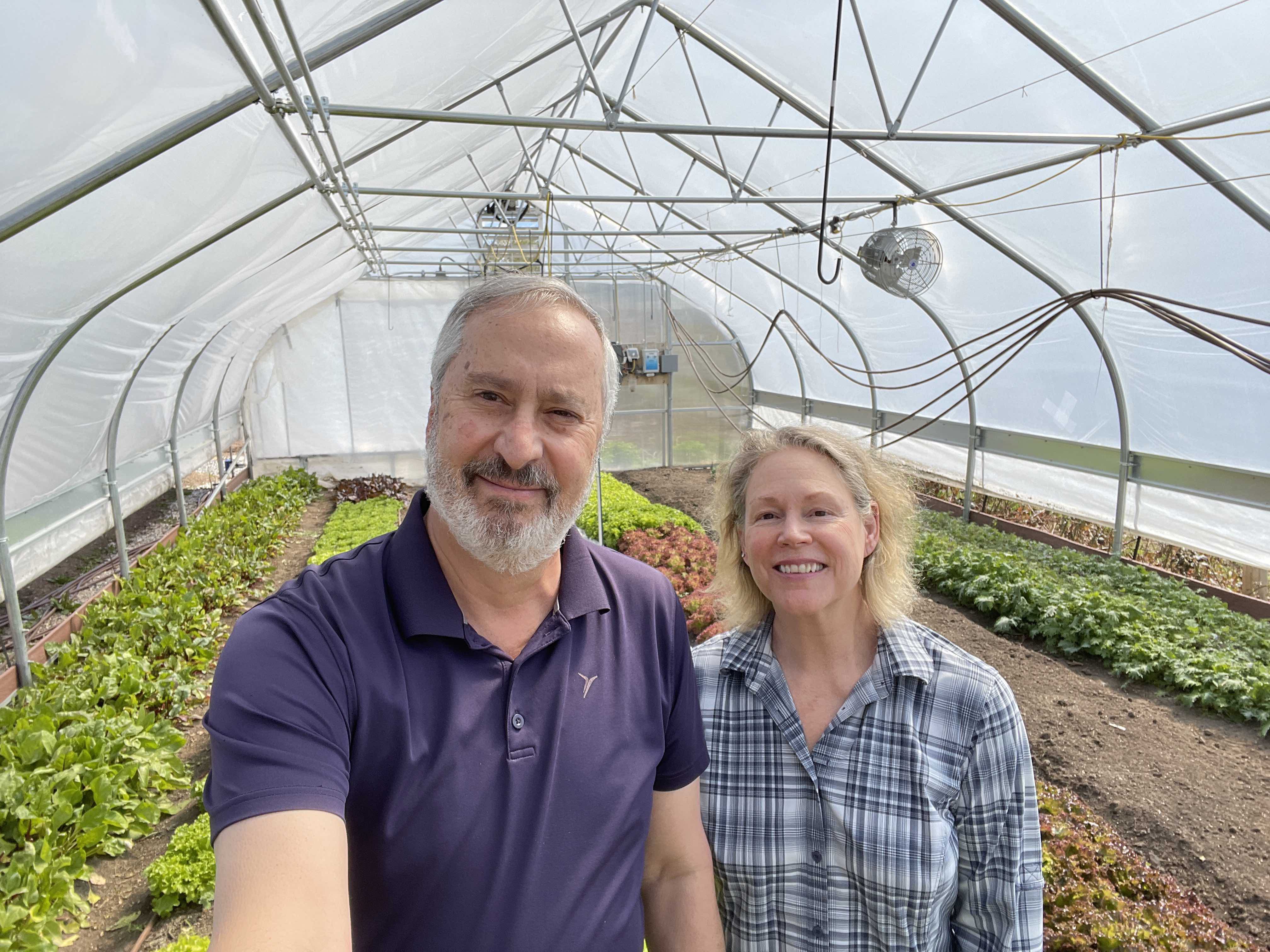
“We had watched a show on TV about CSAs (community-supported agriculture), and it just really made me think about my great-grandmother and how she would grow a little bit of produce, and her neighbors would grow a little bit of something else, and together they could combine everything they had and create a meal,” Paula said. “ I loved that and realized that’s what our community needed.”
“People kept telling us we were nuts to try to start a farm here, so we knew it was the right thing to do,” added Joseph.
While waiting for the perfect piece of property to become available, the Sargetakises completely immersed themselves in the world of agriculture. In addition to researching and visiting other farms, Paula and Joseph learned about farming practices through courses at Utah State University, Colorado State University, and Cornell. Their decades-long dream finally came true when 2-acres became available within city limits.
“As soon as we saw this place, we knew it was perfect,” Paula said.
While two acres might not seem like a lot when compared to acreages required for grazing livestock or growing wheat, Paula and Joseph strive to use every inch of their property to grow a variety of produce. Walking through their farm, you can find everything from veggies and fruits, to nuts, edible flowers, cut flowers, microgreens, and more. Local seeds are used whenever possible to plant and grow the produce, especially for microgreens.
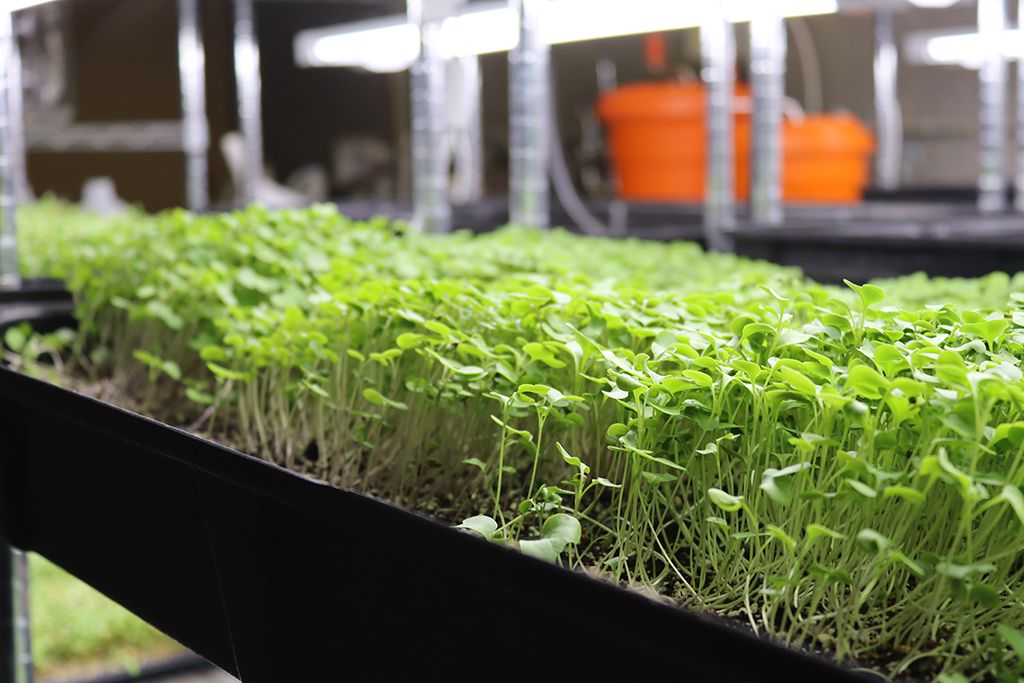
Frog Bench Farms is also home to a 2,800-square-foot, fully automated greenhouse. A connected weather station monitors the temperature, humidity, and light levels and can adjust the environment as needed.
To help maintain the environment of the greenhouse, the glass is sprayed with a mixture of water, buttermilk, and pottery clay that helps prevent the inside from overheating or requiring additional cooling during the summer months. The solution washes away during the summer months so that as the days get shorter, more sunlight is let into the greenhouse.
Frog Bench Farms uses low-impact methods for growing produce. Part of their sustainability efforts includes using solar power, composting, crop rotation, cover crops, and different water capture methods. For example, to irrigate the greenhouse water is collected from the roof and stored in tanks. For most of the year, they can irrigate with this water and only have to supplement during July and August.
Frog Bench Farms currently provides produce to restaurants within a 15-mile radius of the farm. These restaurants include Pago, SLC Eatery, Oquirrh, and more. Every week, chefs receive a text about what produce is available for purchase, and everything is first come, first serve.
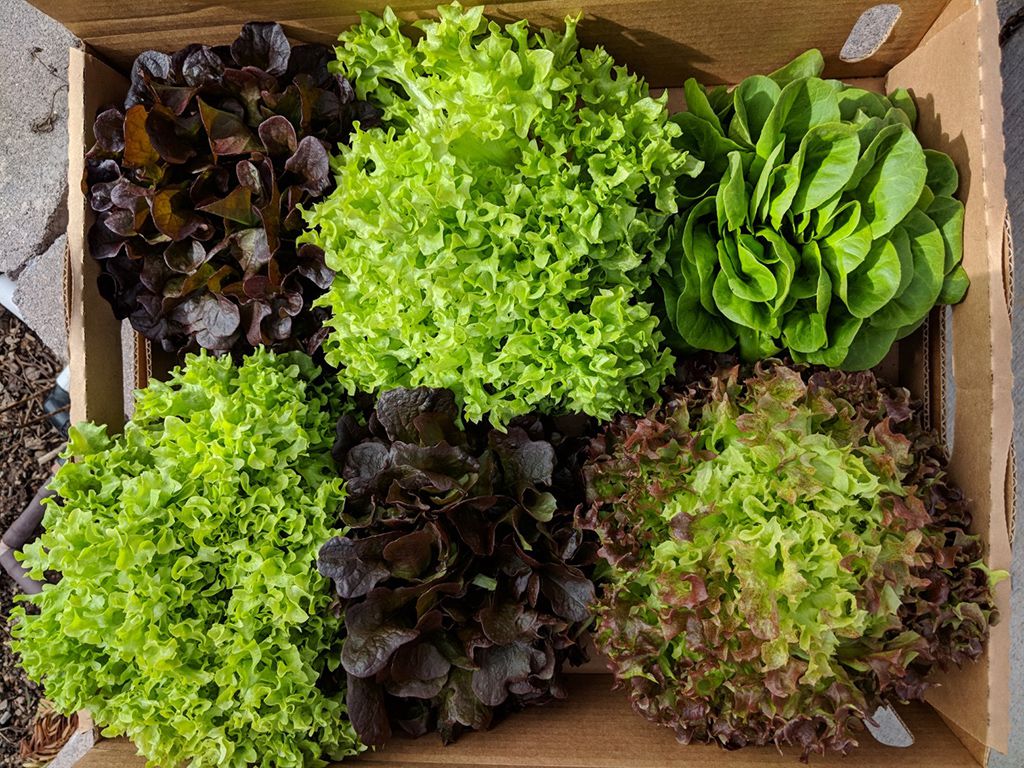
“The restaurants are very supportive of us, and it’s very rewarding to see the chef’s eyes light up when they pick up their orders,” Joseph said.
Thanks to the greenhouse and the use of cold frames, raised planters, and row plantings, Frog Bench Farms can grow food year-round, and as a result, work with restaurants, which require a regular, consistent supply of produce. Locals are also able to buy produce online to pick up at the farm.
Paula and Joseph were quick to agree that one of the things they love most about Frog Bench Farms is sharing it.
“Being able to share our food, as well as outreach and education, really means a lot to us,” Paula said.
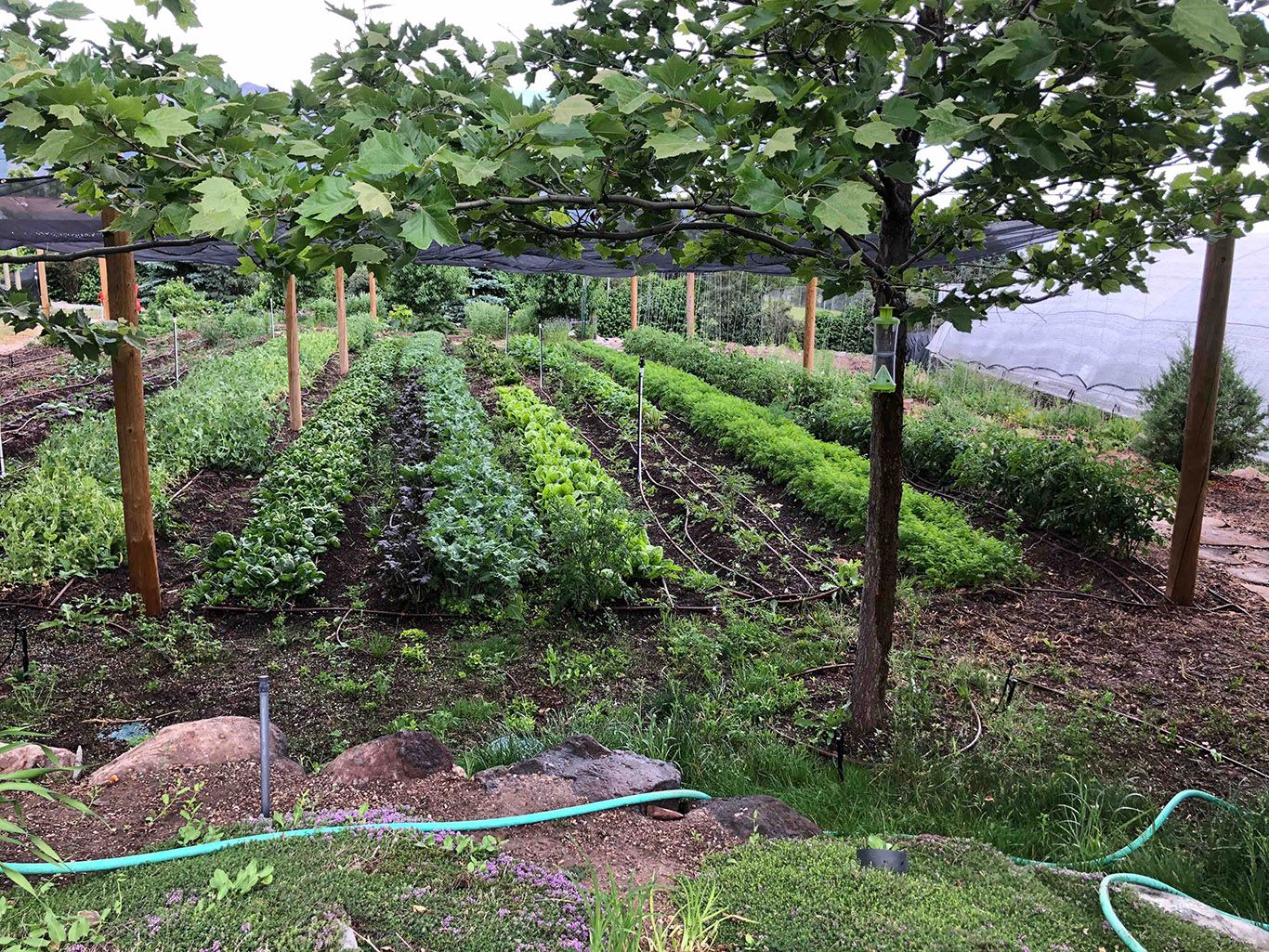
Part of their outreach includes working with local non-profits. An area of their farm is designated as a non-profit section and all of the produce grown in that area is used to host a dinner to support a non-profit. Paula and Joseph work with the organization by offering the location and produce at no cost and work with a chef to coordinate the menu. Tickets are sold for the dinner and all proceeds benefit the non-profit.
Frog Bench Farms plans on offering more value-added products, such as herb blends, to the public in the future. The farm also includes a kitchen approved by the Utah Department of Agriculture, and the Sargetakises hope to host classes to teach people how to cook with the food they grow in their own gardens one day.
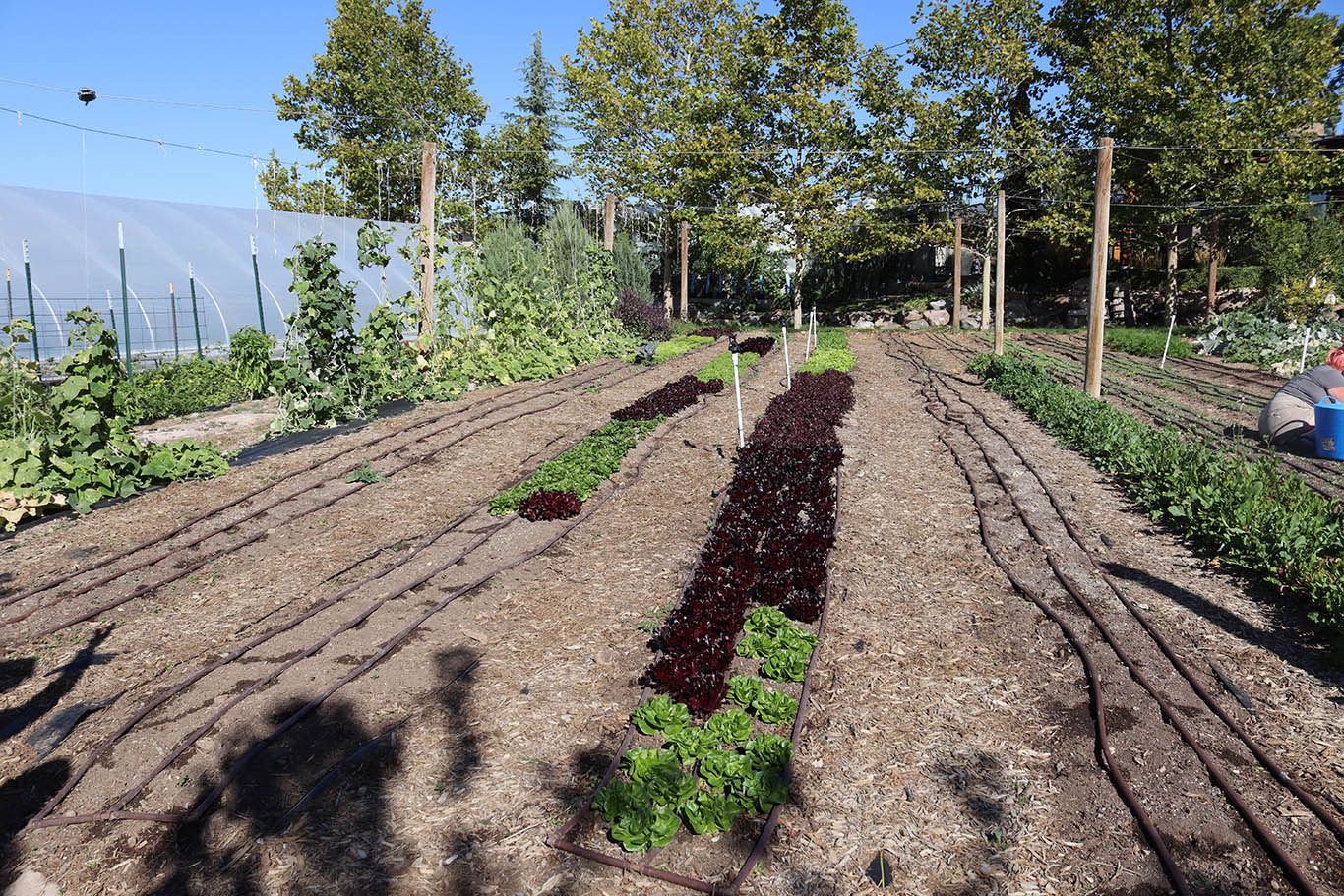
As the first urban farm in the area, Joseph and Paula were trailblazers working with the city to make it possible for others to start a farm within city limits. For those looking to start a similar operation, they have a little advice:
“Don’t be afraid to say you don’t know,” Paula said. “Reach out to others in your community for help and rely on the experience of others when needed.”
To learn more about Frog Bench Farms, visit www.frogbenchfarms.com.
Want more news on this topic? Farm Bureau members may subscribe for a free email news service, featuring the farm and rural topics that interest them most!
